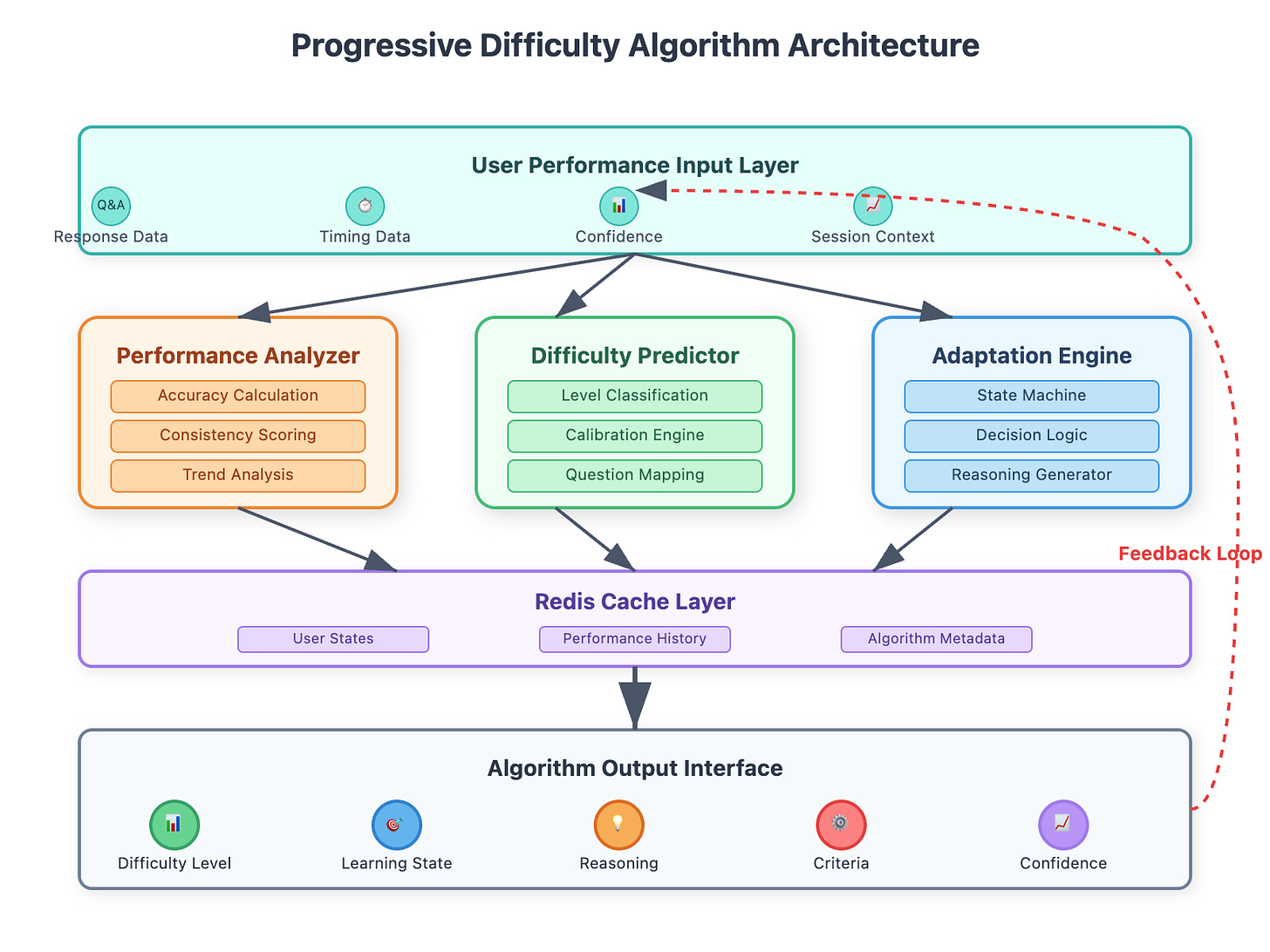Day 16: Progressive Difficulty Algorithm - Design
Building Adaptive Learning Systems That Actually Learn
What We're Building Today
Today we're designing the brain of our quiz platform - a progressive difficulty algorithm that adapts to each user's learning journey. We'll create the decision-making logic that determines when to increase difficulty, when to provide easier questions for confidence building, and how to maintain optimal challenge levels.
Key Components:
Adaptive difficulty scoring engine
User performance tracking system
Question sequencing logic
Confidence interval management
The Hidden Science Behind Adaptive Learning
Most educational platforms treat difficulty like a ladder - you climb one rung at a time. But real learning doesn't work that way. Your brain needs a delicate balance: too easy and you're bored, too hard and you give up. The sweet spot? About 85% success rate with periodic challenges.
[Component Architecture ]
Our progressive difficulty algorithm sits at the heart of our distributed quiz system, consuming real-time performance data and making split-second decisions about what question to serve next. Unlike static systems, this component learns and adapts, creating unique learning paths for millions of concurrent users.



